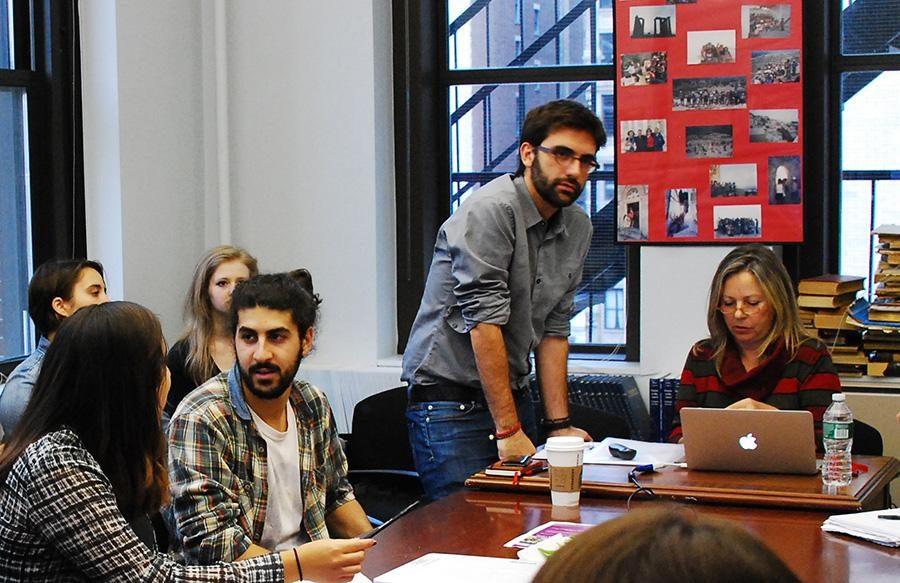Lecture discusses portrayal of Greece
October 1, 2014
The A.S. Onassis Program in Hellenic Studies hosted Maria Kakavoulia, a professor of rhetoric and narratology at Panteion University in Greece, on Sept. 30 in a lecture about the media representation of the Greek debt crisis.
Liana Theodoratou, the director of the NYU Onassis Program program, made the opening remarks for the event, welcoming Kakavoulia to the states.
Kakavoulia discussed the media representations of the Greek crisis from three points of view including the German-Greek relations and the media, the British press and the representation of elections in 2012 in Greek social media.
The lecture started with an introduction to the main facts about the crisis that has affected the country since 2008.
Kakavoulia noted several examples of articles on the coverage of the Greek crisis by foreign news organizations. She highlighted the two main representations of Greece in these media.
“Two frequently used metaphors to depict Greece are first, Greece as the weakest member of the EU family, and second, Greece as a starting point of a potentially contagious financial crisis,” Kakavoulia said.
CAS senior Scott Cairns said he found the presentation interesting because of the different points of view she presented.
“She was an excellent speaker, and I think she touched on various representations of the crisis through very different lenses,” Cairns said.
Kakavoulia also emphasized the change in media coverage of events that occurred as a result of the crisis. She added that the widespread use of new media can be combined with traditional media to open up new possibilities for news coverage.
“Social media brings out a very different power of media representation when they are used to express the peoples’ feelings,” Kakavoulia said. “In a way, they give the crisis from within.”
Cairns said the presentation was a good foundation for getting started when thinking about media coverage of major news events.
“She created an excellent jumping off point for further research, which is what an event like that should do,” Cairns said.
Niki Marie, a Steinhardt senior, took note of the argument Kakavoulia made about the impact the crisis had on the collective European identity.
“When our lecturer brought it up, I thought it was really important, because that affected Europe on a larger scale and portrayed Greece as the part of the equation that could disrupt the idea of Europe that the entire world has held all along,” Marie said.
Marie believes the lecture helped her put media coverage of the Greek crisis into perspective.
“I think it was important and useful for me to attend this lecture because it helped contextualize so much of the media whirlwind that happened throughout the last six years,” Marie said.
A version of this article appeared in the Wednesday, Oct. 1 print edition. Email Marita Vlachou at [email protected].

























































































































































